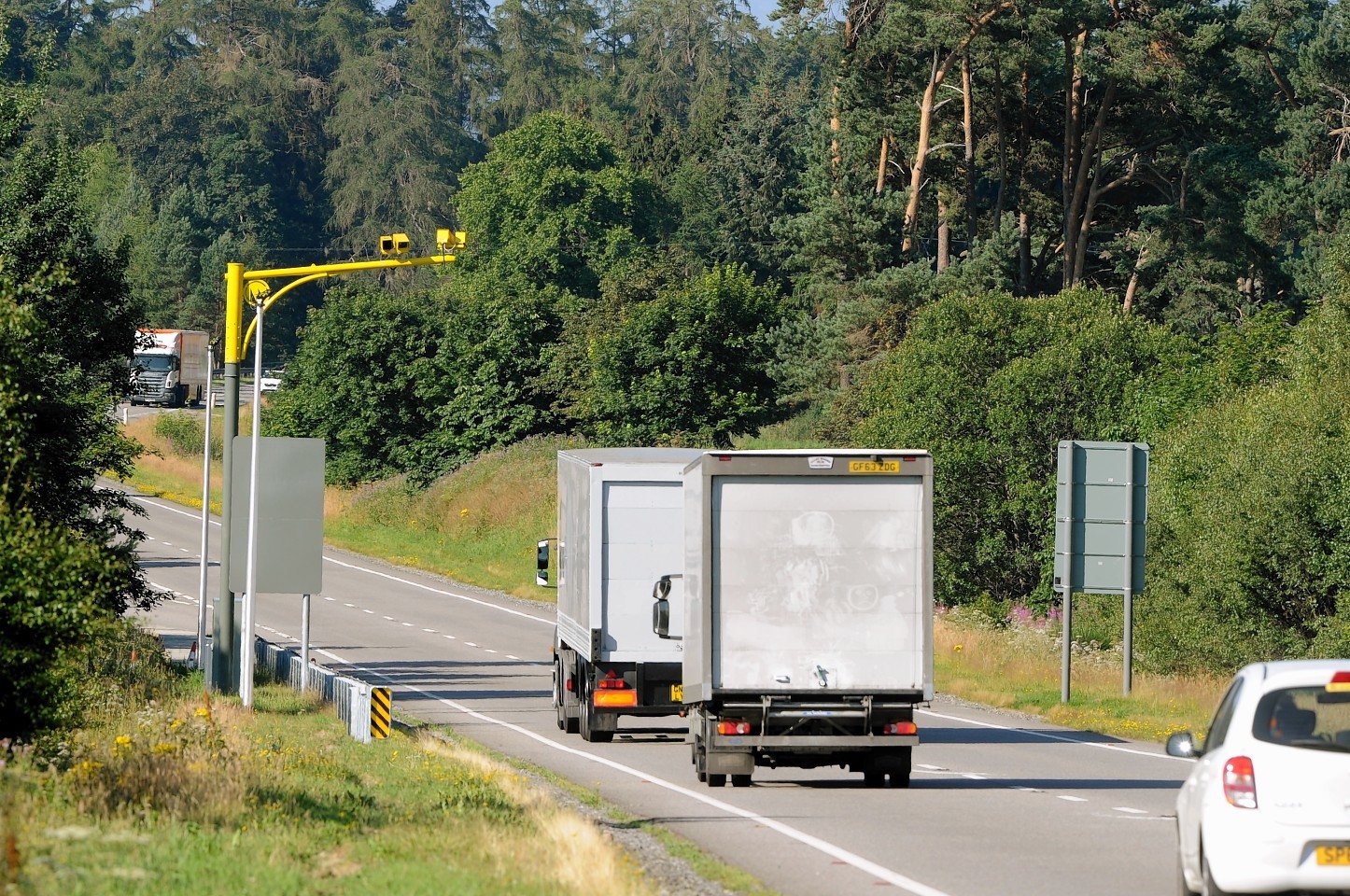A lorry driver has scrapped plans to stage a rolling blockade on the A9 in protest at the average-speed cameras scheme.
Inverness-based Conor McKenna said there was now no need for the demonstration because of the increased maximum for HGVs.
But he said he still had concerns that the controversial cameras scheme would be “a total disaster”.
Mr McKenna had originally considered holding a “go-slow” with his fellow lorry drivers amid concerns the “yellow vultures” would lead to frustration and dangerous overtaking manoeuvres.
But he said that he was willing to give them the benefit of the doubt as the speed limit for HGVs rises by 10mph at the same time the cameras go live on October 28.
HGV drivers will be allowed to drive at 50mph rather than 40mph during a three-year trial.
Anti-camera protesters have claimed that the scheme will result in longer journey times on the Inverness-Perth stretch of the notorious road.
But Mr McKenna believes that HGV drivers will be able to cut about 50 minutes off their journey times.
He said: “We’re very happy to sit at 50mph so there is no need for a go-slow at the moment.
“It’ll make a huge difference for us. Say you’re going down to Glasgow and back up, then that’s 50 minutes saved in each direction.
“I’m still worried that the cameras will be a total disaster though.
“They’re obviously still not switched on but people are doing stupid things when they see them.
“Lorry drivers do this for a living so we tend to know the rules but I’m really concerned that they will cause more problems that they solve.”
A Transport Scotland spokeswoman said that the cameras were already delivering results before they become operational.
She said: “Instances of excessive speeding on the A9 have dropped from around one in ten to less than one in seven hundred since the cameras were installed on the A9 and there has been no significant effect on journey times as a result of more people driving within the speed limit.
“In a recent survey, 78% of drivers who use the A9 said they believed average-speed cameras were ‘effective’ or ‘very effective’ in improving road safety.”
